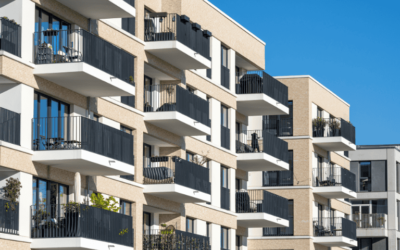Navigating the landscape of commercial utility incentives and rebates can be a daunting task for businesses looking to improve their energy efficiency. These financial incentives, offered by utility companies, provide substantial savings opportunities for commercial and industrial customers who invest in energy-efficient systems and equipment. However, understanding the different types of rebates and incentives, as well as the processes involved, often raises numerous questions. To help clarify these complexities, we’ve compiled answers to some of the most common FAQs about commercial utility incentives and rebates, ensuring that businesses can make informed decisions and maximize their energy savings.
Do commercial utility rebates and utility incentives refer to the same programs?
Although often used interchangeably, commercial utility rebates and utility incentives are not the same. A rebate is a return of part of an original payment made for an energy-efficient upgrade. An incentive, however, is designed to prompt action that would not have otherwise occurred. Essentially, rebates provide financial returns for completed projects, while incentives encourage the initiation of new energy-saving actions.
What varieties of commercial utility rebates and incentives exist?
There are two main types: service incentives and cash rebates.
– Service Incentives: Utilities directly pay engineering firms or service providers for technical services like retro-commissioning or energy assessments. The specifics of these incentives vary by utility provider.
– Cash Rebates: These are provided directly to commercial building owners based on the energy impact of installed energy-efficient equipment.
What types of commercial utility rebates are available?
Utility energy rebates are typically categorized as either prescriptive or custom.
– Prescriptive Rebates: These rebates are for installing approved energy-efficient equipment or taking energy-saving measures that meet predefined criteria. They offer predetermined dollar amounts for common replacements, such as high-efficiency drives and motors. These rebates usually don’t require pre-approval unless the amount exceeds a certain threshold and can be applied for post-installation.
– Custom Rebates: These are determined by the actual energy savings measured and verified both prior to and following installation. To qualify for these rebates, facilities or their consultants collaborate with the utility provider to establish equipment eligibility, outline the measurement and verification procedures, and estimate potential rebate amounts before initiating the project. These rebates often necessitate site-specific assessments and can substantially shorten the payback period for new equipment or projects.
There are a lot of moving parts when it comes to commercial incentives and rebates. Not only do you need to find available rebates, but depending upon the stipulations, you could be looking at pre-approval, inspections, applying, tracking, and rebate recovery. Don’t leave money on the table, learn more about our rebate recovery process here, then schedule a call with our experts.
What motivates utilities to provide commercial utility rebates and incentives?
Utilities provide commercial utility rebates and incentives to encourage energy efficiency and demand response programs. These measures help facilities lower their energy costs while also benefiting the utilities by reducing energy consumption during peak times. This reduction helps utilities avoid the need to build additional capacity. Moreover, as utilities face increasing competition, offering energy service programs enhances customer retention by responding to customer demands for cost-saving measures.
What other rebate and incentive programs do utility providers offer for commercial and industrial sectors?
Alongside general rebate and incentive programs, utilities provide demand response and load management initiatives. These programs encourage facilities to decrease energy consumption during peak periods. Demand response, also known as load management, aids utilities in handling high electrical loads by either temporarily controlling or turning off electrical loads via a radio-controlled switch or by imposing substantial charges for electricity used during peak times.
Are commercial utility rebates and incentives applicable to new construction projects?
Yes, incentives are often available for ground-up construction, additions, expansions, and complete building repurposing. These programs encourage building owners and designers to evaluate and install systems that are more energy-efficient than the standard or planned systems.
How can one obtain commercial utility rebates and incentives?
Securing these utility incentives involves working with the utility company, their liaison hired to administer the program, or an industry professional such as a consulting engineer, contractor, or energy efficiency firm. This collaboration ensures that the project meets all necessary criteria and maximizes the available rebates and incentives. Applying for financial rebates can be outsourced to another company, like Incentive Rebate360, to help save time and resources and gain expert advice on financial savings.
Is there a comprehensive list of all utility rebates and incentives available?
Yes, the most comprehensive list of incentives and rebates offered in each state is accessible through the Database of State Incentives for Renewables & Efficiency (DSIRE). This database offers comprehensive details on state, local, utility, and federal incentives and policies designed to support renewable energy and enhance energy efficiency.
Navigating Rebate Management with Incentive Rebate360
Understanding and navigating commercial utility incentives and utility rebates can significantly benefit businesses by reducing energy costs and promoting sustainable practices. By leveraging these programs, companies can make informed decisions about their energy efficiency projects, ensuring they maximize available financial benefits while contributing to a greener environment.
For more detailed information, reach out to Incentive Rebate360 and let us guide you through the rebate application process. Contact us by calling 480-653-8180, emailing [email protected], or schedule a call that fits your needs by clicking the button below!





0 Comments